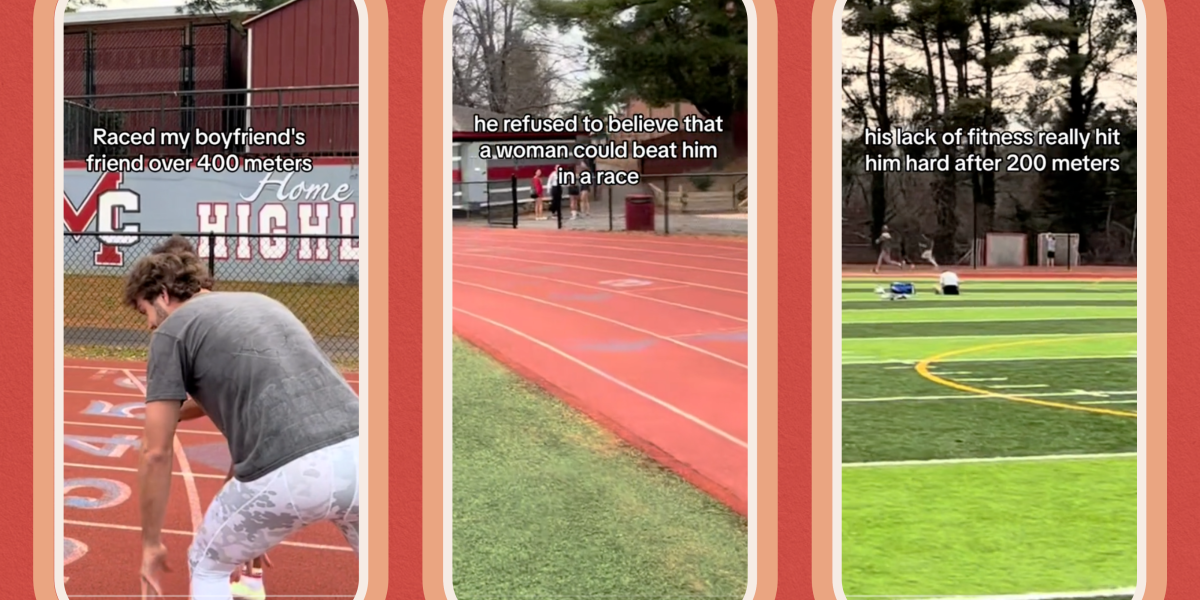As a health and fitness journalist for over a decade, I come across tons of stats, surveys, and figures each year. But one that’s lived rent-free in my brain since 2019? The YouGov survey that found one in eight men think they can score a point against Serena Williams.
Yes, that Serena Williams. You know, the one who’s racked up 23 Grand Slam titles, once scored 24 aces in a single match, and can blister a serve past you (but maybe not, I guess, 12% of dudes) at 126 miles per hour.
The belief that regular guys can do extraordinary things against top-of-the-game female athletes is unfortunately all too common. It was on display once again over the holidays, when University of Virginia track star Alahna Sabbakhan posted a video on TikTok that showed what happens when an average, non-runner man is quite convinced he could beat her, a Division I athlete, in one of her marquee events: the 400 meters.
Spoiler: He could not.
“The guy was saying that there’s no way a woman could beat him; he just wouldn’t believe it,” Sabbakhan, a 2022 All-American for UVA and grad student studying for her master’s in public health, tells SELF. “He didn’t know that [the 400 meters] is a hard thing to run without training. It’s one of the hardest track events.”
At first, she didn’t even entertain the challenge, but the man—a peripheral friend of her boyfriend’s—kept going on about it for days. “I started getting a little tired of it,” she says.
One day when they were all by the track, he brought up the race again, and Sabbakhan decided to go for it. After all, she says, she had a workout scheduled that day that included 400-meter repeats anyway. “I figured, sure, why not?” Sabbakhan says. “I guess I could have him join me and maybe that would get him to stop talking.”
He brought his parents, family, and friends to spectate, and then they got started. Sabbakhan intentionally stuck with him for the first 200 meters, after which he started to fade—fast. So much so, in fact, that he’s already well out of frame during her last kick.
“That’s what I kind of figured would start to happen with no training…you hit the wall,” Sabbakhan says. “I took that as an opportunity to start pushing a little bit harder, finish a little harder. After I realized that by the last 100 meters that he was nowhere in sight, I just kept pushing anyway, because it’s a good habit to be in as a runner to finish well.”
